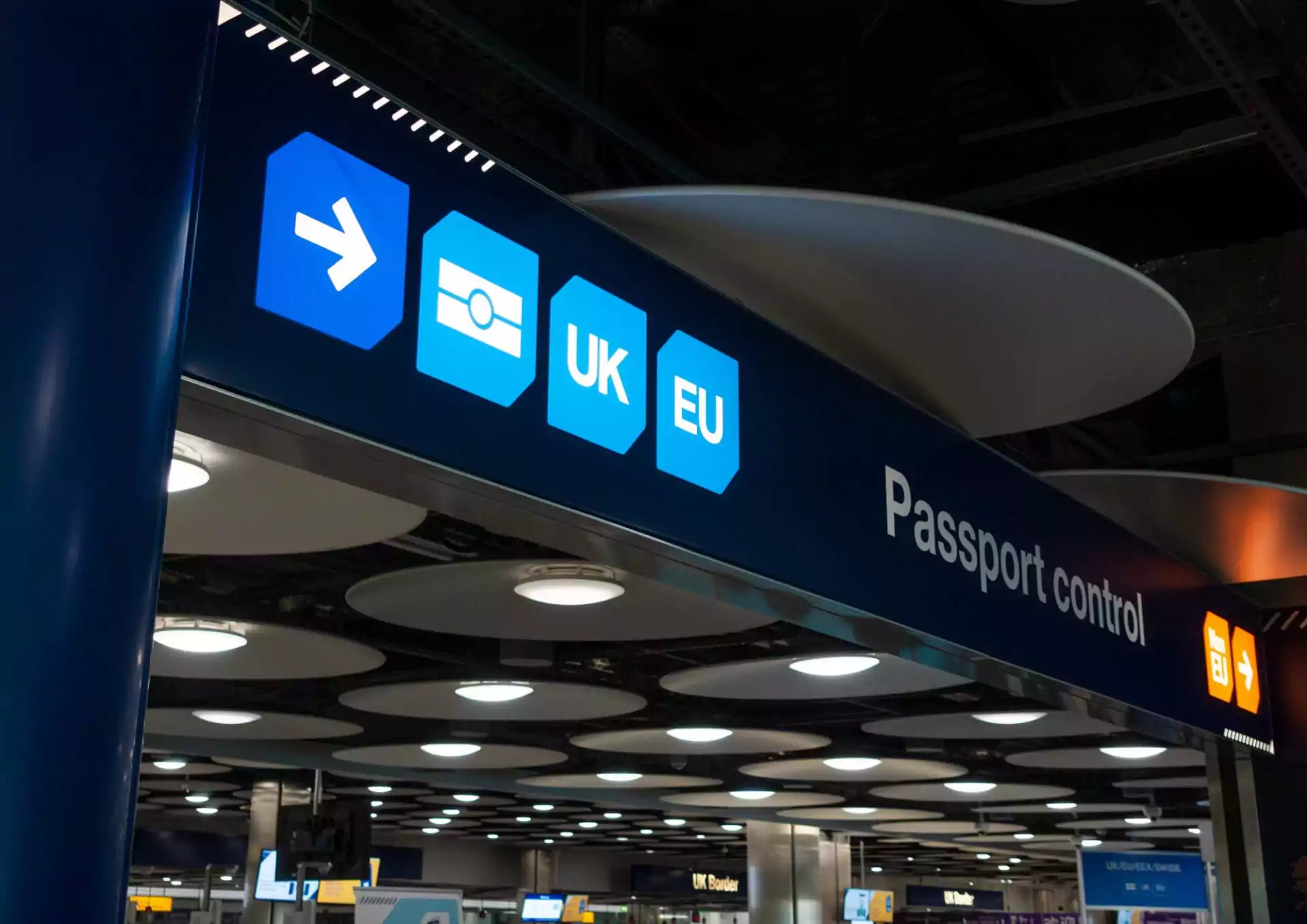
Business immigration updates for employers | June 2025


In the constantly evolving world of immigration, we have highlighted below the main updates and developments for employers that have been released this month:
End to study or work visa vignettes for overseas applicants
From 15 July 2025, overseas applicants for study or work visas (Global Business Mobility and Skilled Workers (including Health and Care)), who have their biometric information taken at a visa application centre may no longer get a vignette (sticker) in their passports to be used to travel to the UK. Instead, such applicants will need to create a UKVI account and access their eVisa before they travel to the UK. The practical benefit of this change is that such applicants will not need to leave their passport with a visa application centre for a vignette to be inserted once the visa has been granted.
Employers should check that applicants have taken the required steps to access their eVisa prior to travel to the UK. When employers are conducting right to work checks on these individuals, they must complete these online, via a share code generated by the applicant. Although a compliant online right to work check can be actioned prior to the applicant's arrival in the UK, sponsors must adhere to their record keeping duties and obtain evidence of the applicant's date of entry into the UK (see Appendix D, Part 1(b): https://www.gov.uk/government/publications/keep-records-for-sponsorship-appendix-d)).
Other visa categories that will no longer receive a vignette include: Global Talent, International Sportsperson and the Youth Mobility Scheme.
Although the Home Office are moving towards full digitalisation of the visa process, vignette stickers will still be provided to those applying as dependants or those applying as main applicants for visas other than study or work.
India Young Professionals Scheme visa second ballot
The India Young Professionals Scheme visa allows Indian citizens between 18 and 30 years old, who have a bachelor's degree level or above, savings of at least £2,530, to live and work in the UK for up to 2 years. To apply for this visa, eligible applicants must first be selected through a ballot system, which is free to enter.
The Home Office has confirmed that the second and final ballot for the India Young Professionals Scheme visa will open at 1:30pm India Standard Time on 22 July 2025 and close at 1:30pm India Standard Time on 24 July 2025. The successful entries are picked at random. There are 3,000 places available this year, but the majority of places were secured in the previous February 2025 ballot.
Taiwan and Hong Kong Youth Mobility Scheme second ballot
The Youth Mobility Scheme visa allows nationals from certain countries, who are aged between 18 and 30 or 18 to 35 depending on their nationality, with savings of at least £2,530, to live and work in the UK for up to 2 years. To apply for this visa, nationals from Taiwan and Hong Kong must first be selected through a ballot system, which is free to enter.
The Home Office has confirmed that the second for Taiwanese and Hong Kong nationals under the Youth Mobility Scheme will open at 12:01am local time (Taipei time and Hong Kong time) on 15 July 2023 and close at 12:01am local time on 17 July 2025. The successful entries are picked at random. Successful entries will receive an email by 1 August 2025 allowing them to proceed to submit their visa application within 90 days. There are 1,000 places available for each country this year, but most places were secured in the previous February 2025 ballot. Full guidance on how to apply can be found here.
Significant rise in temporary visas for the creative sector since 2021
The Creative Industries Policy and Evidence Centre (Creative PEC) has published a research report revealing a 70% increase in temporary visas for creative roles since 2021. This contrasts with a 13.5% increase in temporary visas for non-creative occupations.
During the same period, longer-term worker visas for creative occupations increased by only 8%. This contrasts with a 233% increase in longer-term worker visas for non-creative occupations. It is also notable that 65% of all visas granted to creative workers were in IT, software and computer services subsector.
The report also highlights the reliance of the creative sector on a skilled workforce, with over 75% of workers having a degree, and non-UK workers making up 16.2% of this sector. Migrant workers therefore play a vital role in the temporary creative sector to meet the skills gaps and current shortages which are likely to continue until Labour's new Market Evidence Group is up and running. The full report can be found here.
The Migration Observatory publishes briefing on the integration of migrants in the UK labour market
We've extracted the key data from the briefing relevant to employers and sponsors which are:
- In December 2024, 19% (or 5.75 million) of the UK employee workforce were adult migrants (non-UK nationals).
- Migrants are overrepresented in the administrative services, hospitality, and health and care sectors.
- There were regional variations with London having the highest proportion of non-UK employees (42%) and Wales having the lowest (10%). This data supports the idea constantly discussed about implementing regional minimum salary levels under the UK's Point-Based-System for a fairer system.
- UK and non-EU employees had similar annualised median earnings in December 2024, while EU employees earned more.
- Many highly educated migrant workers are overqualified for their jobs.
- Foreign-born workers were more likely to work during night shifts and in non-permanent jobs than UK born workers.
The report acknowledges limitations in the data but concludes that disparities persist for adult migrants especially relating to working conditions and earnings. The full briefing can be found here.
Migration Advisory Committee (MAC) recommends a reduction to the Minimum Income Requirement (MIR) for the family visa route
The MAC has published its report advising the government on how to set a Minimum Income Requirement for the family visa route. The report covers the MIR that applies primarily to British citizens or settled residents who want to bring their partner to the country.
The current MIR is £29,000 for occupations that are eligible for the Skilled Worker route. The previous government proposed to increase the MIR to the Skilled Worker salary threshold, which is currently £38,700, however the MAC has advised against this increase. In stark contrast, the MAC has suggested that measures related to the economic situation of the family are more plausible, with reasonable measures for the sponsor's income falling within a range of £17,000 - £28,000 annually based on various methodologies.
Whilst the government could still instead choose to focus on the economic wellbeing of the country when setting the MIR i.e. by using the MIR as a method of reducing overall numbers of the route to reduce the aggregate fiscal cost, the MAC's report concludes that the MAC are not able to sensibly guide the government as to a net migration objective for the route and acknowledged the impact this approach may have on family life.
In addition, the MAC has made various recommendations relating to the practicalities of the MIR and how this should be assessed.
Ultimately, a reduced MIR and more flexibility in how the MIR is assessed should result in a broader talent pool becoming available to employers. However, the current rules will remain in force until further updates from the Home Office are released.
Reminder: expired Biometric Residence Permits (BRPs)
From 2 June 2025, expired BRPs can no longer be used to travel to the UK. Instead, individuals require an eVisa to demonstrate their permission to travel to the UK. An individual's eVisa can be accessed by creating a UKVI account and ensuring their current travel document is linked to this UKVI account. Employers should signpost staff to create a UKVI account via this link if they haven't already signed up.
If you have any queries or require advice on these developments. Please contact our business immigration solicitors on the contact details below.



























